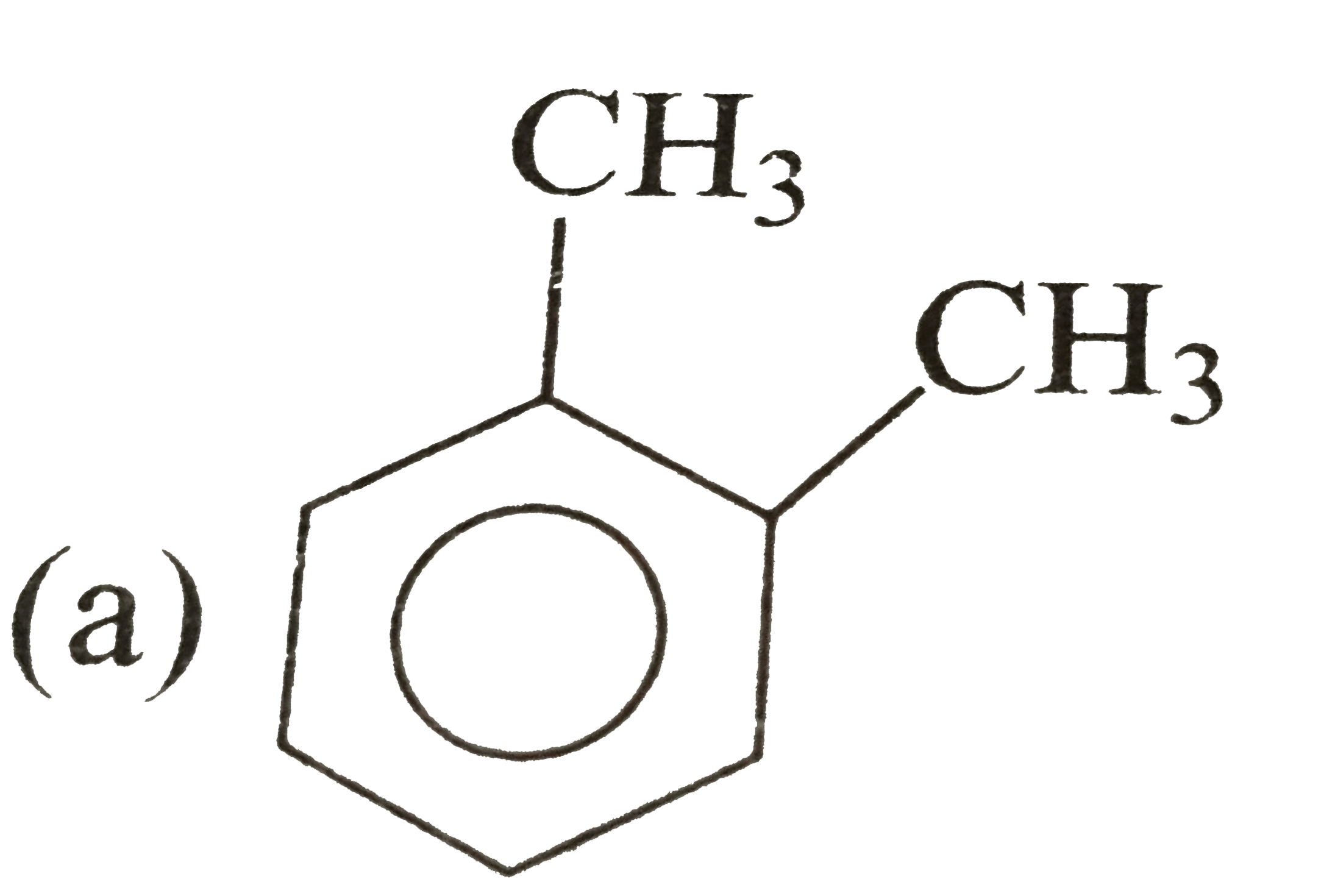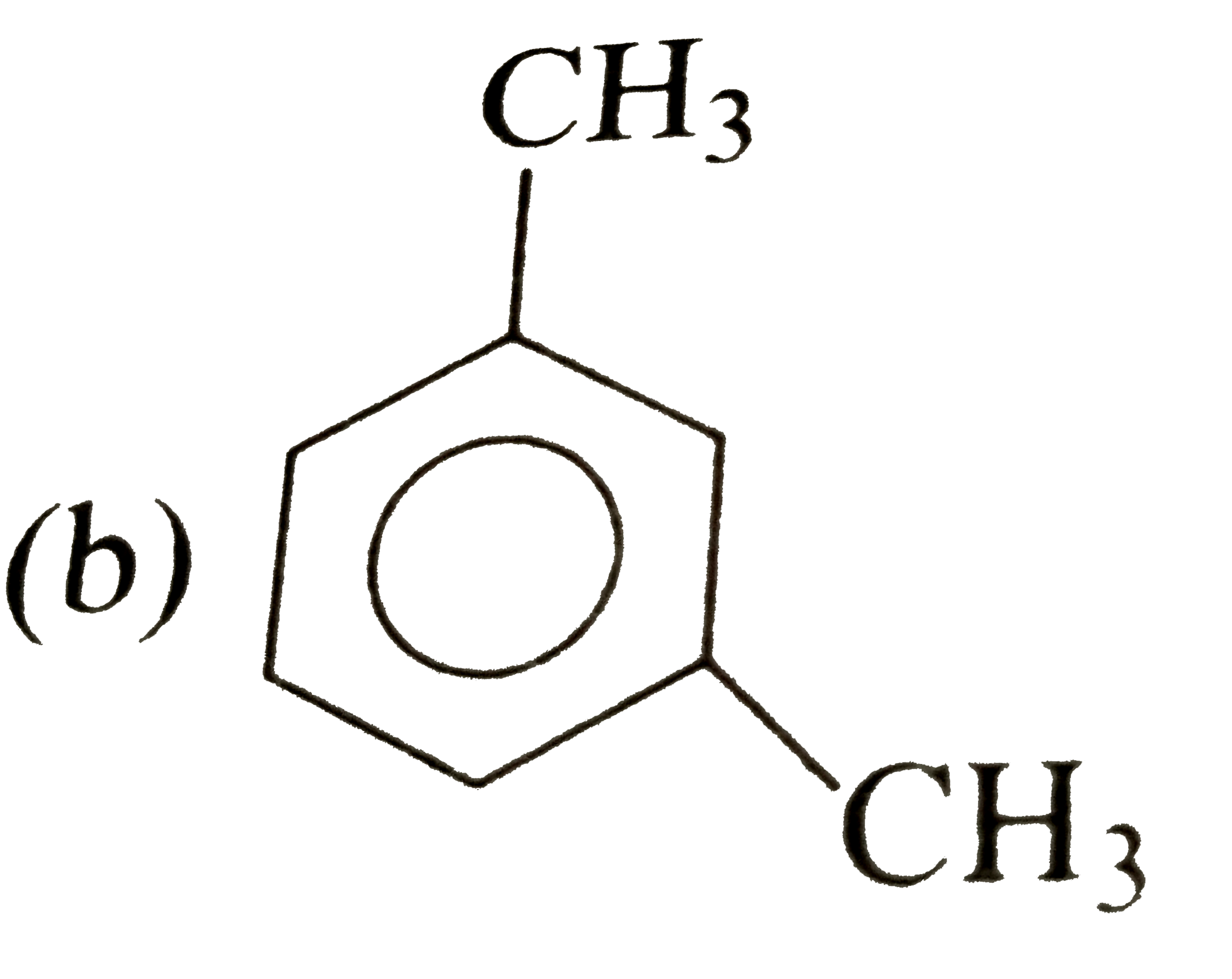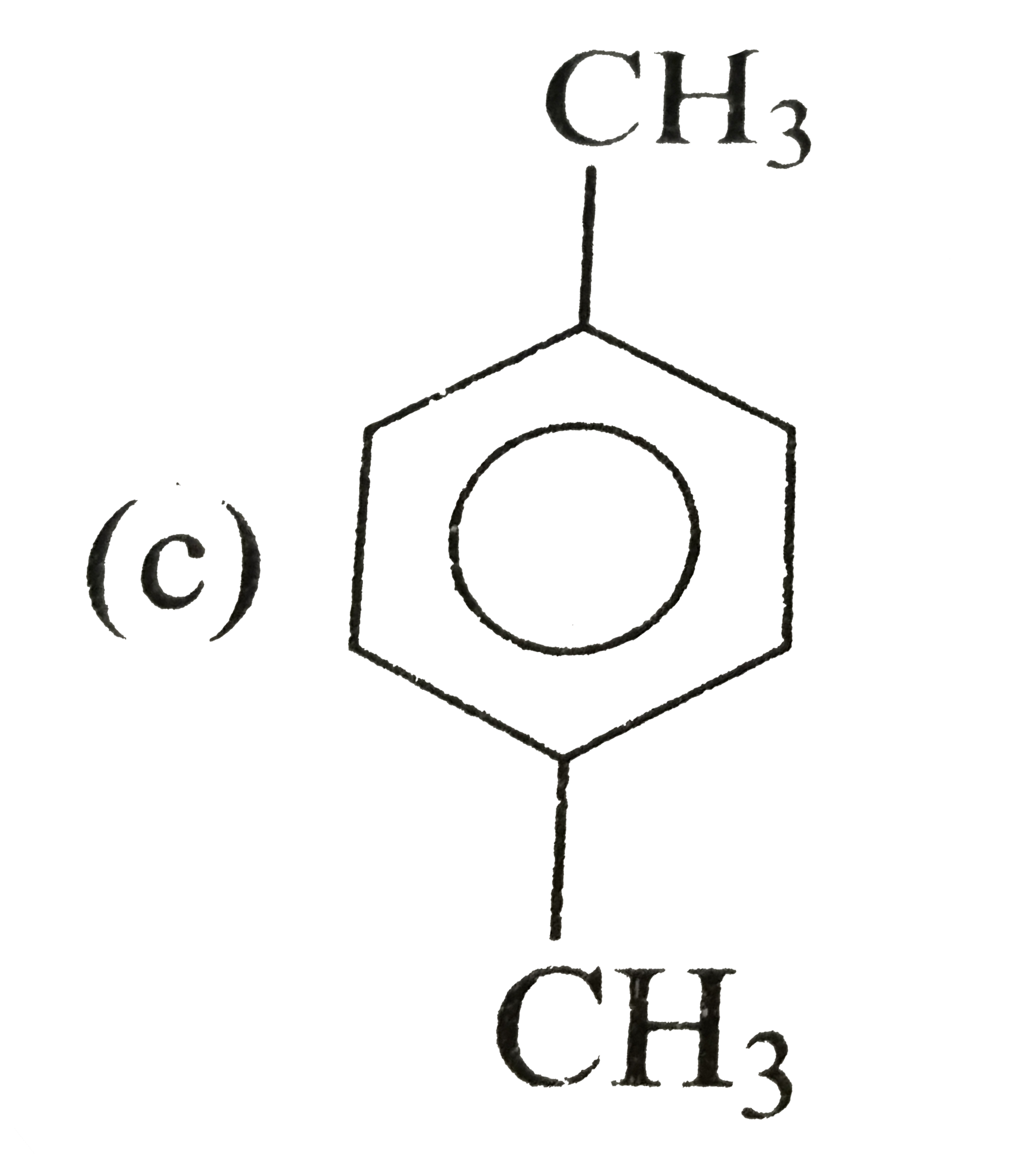Which of the following compound can give only one monochlorinated product upon free radical chlorination?
2-Methylpropane
n-Butane
2, 2-Dimethylpropane
2, 3 dimethylpentane
The correct Answer is:C
To determine which compound can give only one monochlorinated product upon free radical chlorination, we need to analyze the structures of the given compounds and their symmetry. Here’s a step-by-step solution:
Step 1: Understand Free Radical Chlorination
Free radical chlorination involves the reaction of alkanes with chlorine (Cl2) in the presence of UV light, leading to the formation of free radicals. The chlorine radicals can abstract hydrogen atoms from the alkane, resulting in the formation of alkyl halides.
Step 2: Analyze Each Compound
1. 2-Methylpropane (C5H12):
- Structure:
CH3|CH3−C−CH2−CH3|CH3
- Chlorination can occur at any of the three equivalent CH3 groups or the CH2 group, leading to multiple products. Therefore, it can give more than one monochlorinated product.
2. n-Butane (C4H10):
- Structure:
CH3−CH2−CH2−CH3
- Chlorination can occur at the terminal CH3 or at the CH2 groups, leading to two different products. Thus, it can also give more than one monochlorinated product.
3. 2,2-Dimethylpropane (C5H12):
- Structure:
CH3|CH3−C−CH3|CH3
- All the CH3 groups are equivalent, and chlorination will yield only one unique product regardless of which hydrogen is replaced. Thus, it gives only one monochlorinated product.
4. 2,3-Dimethylpentane (C7H16):
- Structure:
CH3|CH3−CH−CH−CH2−CH3|CH3
- This compound has different environments for hydrogen atoms, leading to multiple possible products. Therefore, it can give more than one monochlorinated product.
Step 3: Conclusion
From the analysis, 2,2-Dimethylpropane is the only compound that can give only one monochlorinated product upon free radical chlorination.
Final Answer:
2,2-Dimethylpropane is the compound that gives only one monochlorinated product.
---
Free radical chlorination involves the reaction of alkanes with chlorine (Cl2) in the presence of UV light, leading to the formation of free radicals. The chlorine radicals can abstract hydrogen atoms from the alkane, resulting in the formation of alkyl halides.
1. 2-Methylpropane (C5H12):
- Structure:
CH3|CH3−C−CH2−CH3|CH3
- Chlorination can occur at any of the three equivalent CH3 groups or the CH2 group, leading to multiple products. Therefore, it can give more than one monochlorinated product.
- Structure:
CH3−CH2−CH2−CH3
- Chlorination can occur at the terminal CH3 or at the CH2 groups, leading to two different products. Thus, it can also give more than one monochlorinated product.
- Structure:
CH3|CH3−C−CH3|CH3
- All the CH3 groups are equivalent, and chlorination will yield only one unique product regardless of which hydrogen is replaced. Thus, it gives only one monochlorinated product.
- Structure:
CH3|CH3−CH−CH−CH2−CH3|CH3
- This compound has different environments for hydrogen atoms, leading to multiple possible products. Therefore, it can give more than one monochlorinated product.
From the analysis, 2,2-Dimethylpropane is the only compound that can give only one monochlorinated product upon free radical chlorination.
2,2-Dimethylpropane is the compound that gives only one monochlorinated product.
Topper's Solved these Questions
- HYDROCARBONSBOOK - MODERN PUBLICATIONCHAPTER - HYDROCARBONSEXERCISE - COMPETITION FILE (OBJECTIVE TYPE QUESTIONS) (Integer Type Questions)
4 Videos
- HALOALKANES AND HALOARENESBOOK - MODERN PUBLICATIONCHAPTER - HALOALKANES AND HALOARENESEXERCISE - UNIT PRACTICE TEST
12 Videos
- HYDROGENBOOK - MODERN PUBLICATIONCHAPTER - HYDROGENEXERCISE - UNIT PRACTICE TEST (for Board Examination)
9 Videos
Similar Questions
Knowledge Check
Which of the following compounds can yield only one monochlorinated product upon free radical chlorination?
A2,2-DimethylopropaneB2-MethylpropaneC2-MethybutaneDn-ButaneWhich of the following isomeric heptanes can yield seven differnet monochlorinated products upon free radical chorination ?
A2,3 DimethypentaneB2,2-DimehtylpentaneC3- methylhexaneD2- methylhexaneWhich one of the following compounds give only one isomer upon nitration ?
A B
B C
C D
D
Which of the following isomeric heptanes can yield seven differentt monochlorinated products upon free radical chlorination?
View SolutionWhich of the following compounds do not give different isomers on monochlorination ?
View SolutionWhich of the following compounds yields only one product on monobromination ?
View SolutionWhich of the following will give six isomers in when monochlorinated?
View SolutionWhich of the following compound will give four monochloro (structural) product on monochlorination.
View Solution
